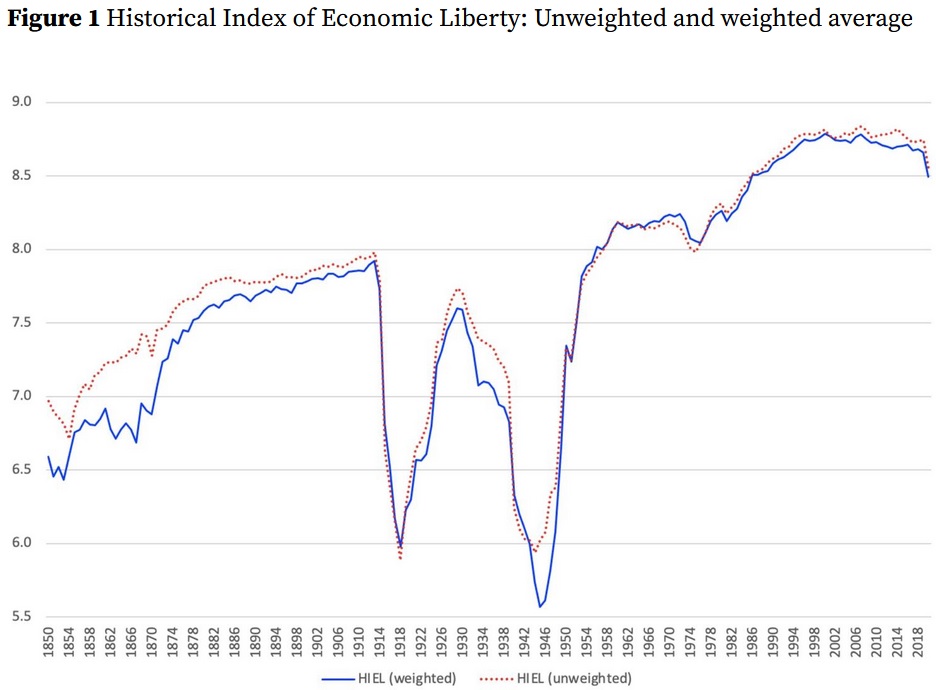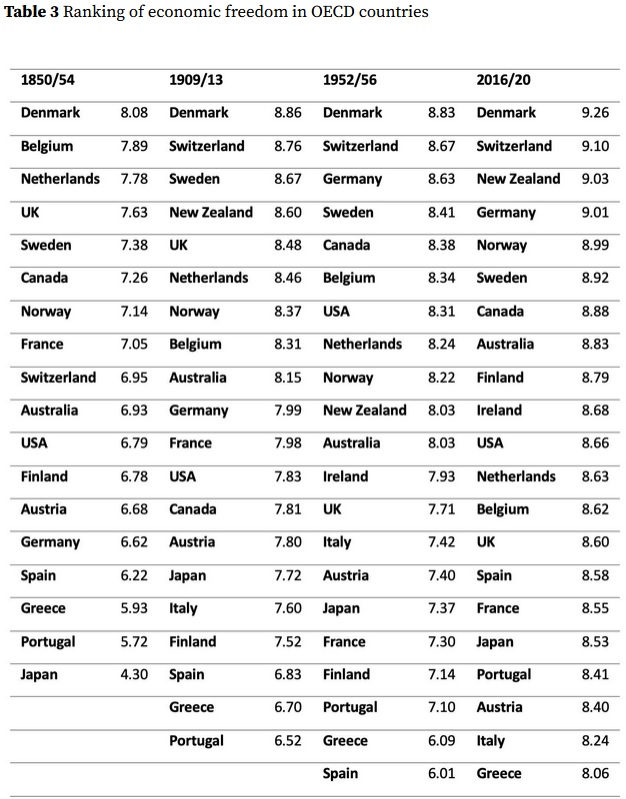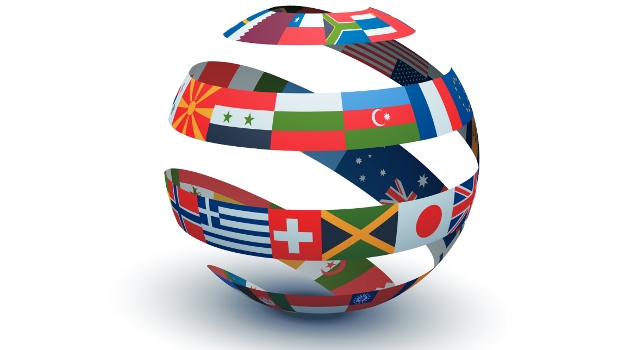Since I write every year about the Heritage Foundation’s Index of Economic Freedom, it’s a no-brainer to also share this video from John Stossel.
There’s a lot of useful information and analysis. Though some of it is rather depressing.
- The United States has become significantly more statist this century.
- Nations such as Venezuela and North Korea are horrifying examples.
- Hong Kong used to be a great success story, but the outlook is now grim.
The video also reminds us that there are freedoms that have nothing to do with economic policy, which is why Stossel gives a much-deserved plug for the Human Freedom Index.
Since we’re on the topic of economic freedom, let’s also look at some new research from Professor Leandro Prados de la Escosura from the Universidad Carlos Iii De Madrid in Spain.
He has constructed a measure of economic freedom (the Historical Index of Economic Liberty) in selected nations going back to 1850. The good news, as shown the chart, is that the long-run trend is positive.

But he points out that economic freedom has declined this century.
The Historical Index of Economic Liberty follows the Fraser index and considers the legal system and property rights, sound money, international openness, and regulation as its dimensions… Long-run gains in economic freedom have been achieved over the last 170 years, amounting to three-fifths of the potential maximum, but its progress was far from steady, as the world wars broke the series in distinct phases. Substantial gains took place from 1850 to 1913 and, again, during the second half of the 20th century (39% and 37% of its potential maximum, respectively). Economic freedom peaked by 2000 and stagnated and declined in the early 21st century.
For what it is worth, the decline in economic liberty is real. I already mentioned falling scores for the United States this century. And the same unfortunate trend is confirmed by data for Western Europe from Economic Freedom of the World.
Let’s now look at Professor Prados de la Escosura’s country rankings. Interestingly, Denmark has been in first place in all four periods. The United States, meanwhile, ranks in the middle.

Regular readers should not be surprised to see good scores for Denmark. Other than its welfare state, it is a role model for economic liberty.
But this is an oppportunity to point out that Professor Prados de la Escosura does not include “size of government” as a variable. Here’s his rationale for that decision.
…freedom of economic activity implies “freedom under the law, not the absence of all government action”… In fact, the government, as a provider of protection to the individual from coercion, is essential for economic liberty… It is the nature of government action, rather than how active the government is, that is at stake. Hence, the size of government should not be considered a dimension of economic freedom.
I think this is a methodological error.
Yes, the provision of core “public goods” such as the rule of law is correlated with better economic performance.
But there’s also an abundance of evidence that large welfare states – and accompanying heavy tax burdens – have a negative impact on prosperity.
Let’s close with an analogy. Some food is necessary for life. Too much food, however, is associated with corpulence and ill health.
With apologies to my anarcho-capitalist friends, the same is true for government spending. The challenge with both food and government budgets is finding the right level for both. Fortunately, there’s also research to answer that question, at least for fiscal policy.
P.S. The above study updates Professor Prados de la Escosura’s 2014 study, which I wrote about here. His analysis is very helpful since it shows that improvements in policy areas like trade have helped to offset the damage of bigger government.
———
Image credit: Pixy.org | CC0 Public Domain.


